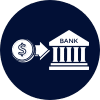Home ∙ Apply With CreditNinja Now
Loans from
$300 – $5,000
Loans up to
24 Months
Minimum credit score
No min. to apply
CreditNinja online personal loans are a fast and easy way for borrowers to access same-day funding.* We specialize in bad credit installment loans, which means you don’t need a perfect credit score to get approved.
Our flexible repayment and competitive rates keep monthly payments affordable, and there are no prepayment penalties for paying off your loan early. Fill out a quick application and find out if you qualify for a personal loan in minutes.
Why Choose CreditNinja for Your Personal Loan?
CreditNinja works to provide convenient personal loans to consumers who may not have more affordable options available. Ditch the hassles that come with payday loans or other quick cash options, and enjoy financial relief with a CreditNinja personal loan! Some benefits borrowers can enjoy include:

Easy to Apply
Fill out our simple application online from any smartphone or computer.

Same-Day Funding*
Get your approved personal loan in a few hours or the next business day!*

Low Credit Support
No minimum credit score requirement means all credit types are encouraged to apply.

Direct Deposit
Using direct deposit allows us to approve your application faster and get you your money ASAP.

Find Out if You Qualify Fast
Complete the online app in just a few minutes and find out if you qualify right away.*

Get Your Money Quickly*
Receive your personal loan the same day you're approved or the following business day.*
CreditNinja Online Rates and Repayment Options
There are always costs to borrowing money, which is why making an informed financial decision is so important. Check out some details about CreditNinja online rates and repayment options below:
- Flexible Repayment — More manageable loans, up to 24 months.
- Fees — No hidden fees! Find all details about potential late payment penalties, origination fees, and other charges in your loan contract.
- Annual percentage rate (APR) — CreditNinja offers competitive interest and fixed rates to keep your monthly payment stress-free and affordable.
| Loan Amount Ranges | Flexible Repayment | Minimum Credit Score |
|---|---|---|
| $300 – $5,000 | Up to 24 months | None! All credit scores are considered. |
Calculate Your Monthly Payments
What CreditNinja Loan Customers Are Saying
Check out what recent borrowers are saying about their experience with CreditNinja:
|
“Thank you for making this a very smooth stress free transaction. I would definitely recommend CreditNinja to anyone who has a hard time finding a loan. The payments are well within reach.”
— Nancy Test-Moreland |
“I had an emergency and credit ninja was there to process my application and get funds to me quickly. I will refer friends and family!!! Thank you Credit Ninja!”
— Angela Herrington-Hayes |
“The customer service reps did a great job at helping me get through this refinance of the current loan. Had an issue with fraud alerts on my credit report and handled it well.”
— Dale |
How to Apply for a CreditNinja Loan
Applying for a CreditNinja personal loan is not only quick, it’s super easy. If your application is approved, you’ll see your repayment and rate details. After you review your loan details and sign your contract, you’ll receive your personal loan. You can even get your money the same day you apply!* Here is how it works:

Apply Online Easily
Start by filling out a quick application online and find out if you qualify for a personal loan in minutes.

Income Verification
We'll use Instant Bank Verification (IBV) to confirm your income.

Same-Day Availability*
Review your rates and terms, then sign your contract. After that, you should receive your cash shortly!*
What Is a Personal Loan?
Personal loans, also called installment loans, are a type of loan in which borrowers receive their loan amount in one lump sum payment. They then repay their balance, plus interest and any fees, in monthly installments. Places like banks, credit unions, and direct lenders usually offer personal loan products. However, not all lenders work with bad credit borrowers. So, if you are working with a less-than-perfect credit score or want to improve your overall credit, you may want to look at lenders that offer personal loans for bad credit, like CreditNinja!
What Types of Personal Loans Does CreditNinja Offer?
CreditNinja specializes in bad credit personal loans. Our loans are unsecured installment loans, which means you don’t have to offer any kind of collateral in order to get approved. At CreditNinja, you’ll find varying loan amounts, manageable repayment, and highly-rated customer service.
Installment Loans
CreditNinja installment loans range from $300 – $5,000, ensuring they can cover just about any financial need. Our installment loans also come with fixed interest and manageable monthly payments. Direct deposit also lets you receive your approved funds directly to your bank account in just a few hours!*

Use Your Online Personal Loan For
No matter how much we prepare, things don’t always go according to plan. When life happens, and expenses pile up, a CreditNinja personal loan may be the perfect financial solution!
Some common reasons people borrow money include:

Debt Consolidation
Paying off credit cards, past-due bills, monthly utilities, and other expenses to get your budget on track or improve credit.

Home Renovation
Electrical issues, roof repairs, water damage, heating/air-conditioning installation, septic system maintenance, etc.

Car Repairs
New tires, oil changes, brake work, battery replacement, catalytic converter issues, ignition coil replacement, fuel cap replacement, radiator replacement, etc.

Medical Expenses
Hospital visits, doctor visits and co-pays, prescriptions, glasses/eye care, dental work, etc.

Emergency Travel
Last-minute plane trips or travel expenses when you need to get somewhere now.

Other Emergency Expenses
Bills, surprise expenses, and just about anything else life can throw at you, CreditNinja has you covered!
Frequently Asked Questions
Is CreditNinja a legit loan company?
You bet! CreditNinja has been an accredited lender since 2018, and during that time, we’ve helped more than 275,000 borrowers!
What type of loan is CreditNinja?
CreditNinja offers unsecured personal loan products, which means borrowers receive one lump-sum payment and repay the balance in monthly installments, no collateral required!
What is the lowest credit score to get a personal loan?
CreditNinja considers borrowers of all credit types, so there is no minimum credit score required to apply for a personal loan with us.
Does CreditNinja accept everyone?
While we can’t say we approve everyone’s application, we do our best to approve as many as we can. Borrowers should be wary of lenders that offer “instant approval” or “guaranteed approval,” as these lenders typically offer products that are expensive, come with hidden fees, and have the potential to put borrowers in a cycle of debt.
Is it possible to get same-day approval?
Yes! Many borrowers receive their money right away! Expect your approved personal loan funds in as little as a few hours or as soon as the next business day.*
What can a personal loan be used for?
CreditNinja personal loans can be used for just about any financial expense, including but not limited to:
- Debt consolidation
- Paying utilities
- Paying rent
- Vehicle maintenance
- School fees
- Medical bills
- Unexpected expenses or surprise bills
Are there any fees associated with CreditNinja’s personal loans?
Like most lenders, CreditNinja charges an origination fee. We also charge late payment penalties, but you won’t have to worry about those if you make your monthly payments on time! Be sure to read over your loan contract carefully to understand the terms, rates, and fees associated with your personal loan.
How does CreditNinja’s repayment process work?
Repay your personal loan with set monthly payments. Complete your payments online or over the phone. You can also sign up for autopay so you never miss a payment.
How long does it take to receive funds?
You can borrow money immediately with CreditNinja’s same-day funding availability.* If you don’t receive your money the same day you’re approved, expect it the following business day.
Note: Be mindful of predatory lenders offering “guaranteed approval” or “instant approval,” as these options can be extremely expensive, have hidden fees, and ultimately lead to more debt!
What are the interest rates for CreditNinja’s personal loans?
CreditNinja offers industry-wide competitive interest rates personalized to each borrower. Our loans also come with a fixed interest rate, which means rates stay consistent throughout the life of the personal loan.
What is the maximum loan amount I can borrow?
CreditNinja offers loan amounts ranging from $300 – $5,000. Specific loan amounts are based on income and general financial history.
How do CreditNinja’s personal loans impact your credit score?
At first, borrowers may see their credit score dip slightly due to the hard credit pull and newly acquired debt. But that dip should balance out within a month or so. Furthermore, borrowers who make on-time payments and ultimately pay off their personal loans may see their credit scores improve over time!
Still Have Questions? Contact CreditNinja Today
Borrowers often turn to CreditNinja personal loans when they have financial emergencies, need to consolidate debt, or have unexpected expenses to cover. Have questions about your personal loan options?
Call our 5-star customer service Monday through Friday from 8 a.m. to 6 p.m. CT and talk to a loan expert. We can help answer any questions you have about personal loans, repayment schedules, and more.

CreditNinja is your trusted source for quality personal finance information. With a demonstrated history of helping borrowers in need, CreditNinja makes your financial growth and understanding our top priority. Whether you want to learn more about budgeting, saving, credit cards, or personal loans, at CreditNinja we are here to help.

